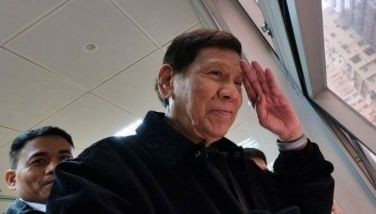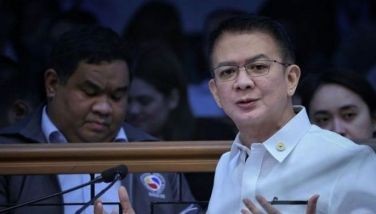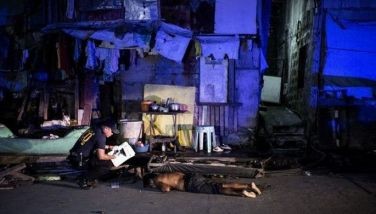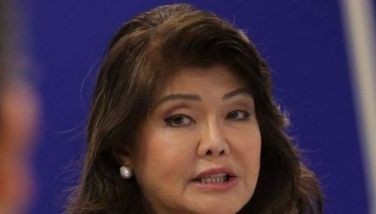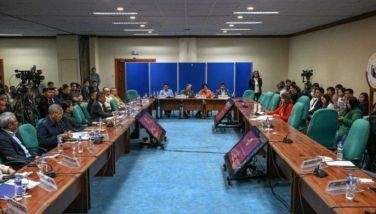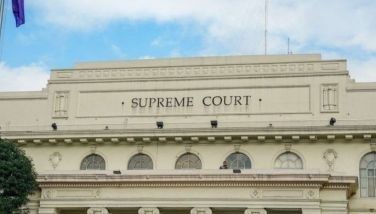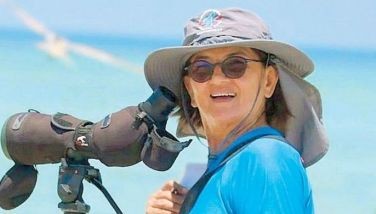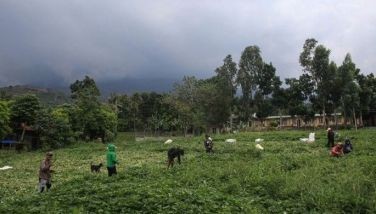Marcos to raise South China Sea issue with ASEAN
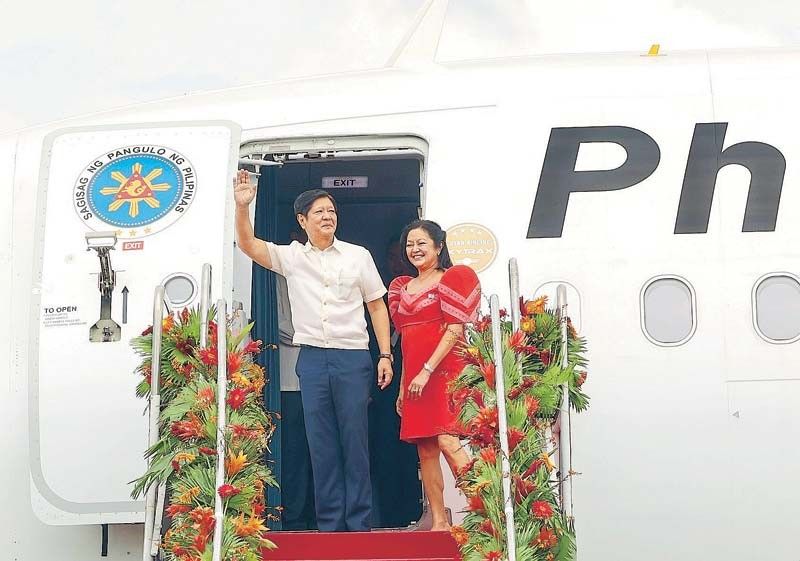
MANILA, Philippines — The South China Sea issue will remain high on the agenda for President Marcos, who is joining the 43rd Association of Southeast Asian Nations (ASEAN) Summit today in Jakarta, Indonesia, where he would again push for a rules-based order in the region long troubled by China’s expansionist moves.
In his departure speech delivered at Villamor Air Base in Pasay City yesterday afternoon, Marcos said he would discuss with fellow world leaders “developments” in the South China Sea.
His pronouncement came days after Beijing released a supposed new standard map, which covers what it now calls a 10-dash line.
He said the second ASEAN Summit for this year, which ends on Sept. 7, provides a strategic opportunity for ASEAN to deepen its robust partnership with its dialogue partners Australia, Canada, India, China, Japan, Korea, the US and the United Nations.
“We will foster cooperation with these countries in areas such as trade and investment, climate action, food security, clean energy and maritime cooperation,” the President said.
“I will also participate in the ASEAN Plus 3 and East Asia Summits during which we will discuss the developments in the South China Sea, the situation in Myanmar and the conflict in Ukraine as well as on other major power rivalries,” Marcos added.
Southeast Asian leaders led by host Indonesian President Joko Widodo are gathering for their final summit this year, besieged by divisive issues with no solutions in sight: Myanmar’s deadly civil strife, new flare-ups in the disputed South China Sea and the longstanding United States-China rivalry.
The meetings will open Tuesday in the Indonesian capital Jakarta under tight security. The absence of US President Joe Biden, who typically attends, adds to the already somber backdrop of the 10-state bloc’s traditional show of unity and group handshakes.
The Department of Foreign Affairs earlier filed a diplomatic protest against China over its new 10-dash line map, which includes waters and features within the Philippine territory.
Marcos earlier said the Philippines “will respond” to Beijing’s new map but refused to disclose “operational details.”
“Now, once again, we received the news, that now the nine-dash line has been extended to the 10-dash line. So, these are the – we have to respond to all of these and we will but again, these are operational details that I would prefer not to talk about,” Marcos said in an interview in Palawan last week.
The Philippines lodged another note verbale against China over an incident wherein a Chinese coast guard ship fired water cannon at Filipino vessels in Ayungin Shoal on Aug. 5.
The Philippine vessels were delivering food, water, fuel and other supplies to troops stationed on BRP Sierra Madre in Ayungin Shoal, a World War II era transport ship deliberately beached in 1999 to serve as military outpost and a tangible proof of the country’s sovereign rights and jurisdiction over the area.
In a rebuff of Beijing’s claim, Marcos said the Philippines has never agreed to remove the decrepit boat from the shoal.
The Philippines has been demanding that China adhere to international laws, including the 1982 United Nations Convention on the Law of the Sea (UNCLOS) and the 2016 arbitral ruling, which invalidated Beijing’s sweeping claims in the South China Sea. Beijing continues to ignore the arbitral award.
In May, Marcos attended the 42nd ASEAN Summit in Labuan Bajo, East Nusa Tenggara in Indonesia.
Aside from the South China Sea issue, Marcos said he would also highlight his administration’s priority advocacies including food security, climate justice, digital and creative economies, protection of migrant workers in crisis situations, as well as combating trafficking in persons.
“Once again, I will use this opportunity to advance Philippine priorities in ASEAN and work with our other ASEAN member-states not only in addressing the complex challenges facing the region but also in pursuing opportunities for ASEAN as an epicentrum of growth,” he said.
Marcos is also scheduled to have bilateral meetings with other leaders during his four-day visit to Jakarta.
- Latest
- Trending



















